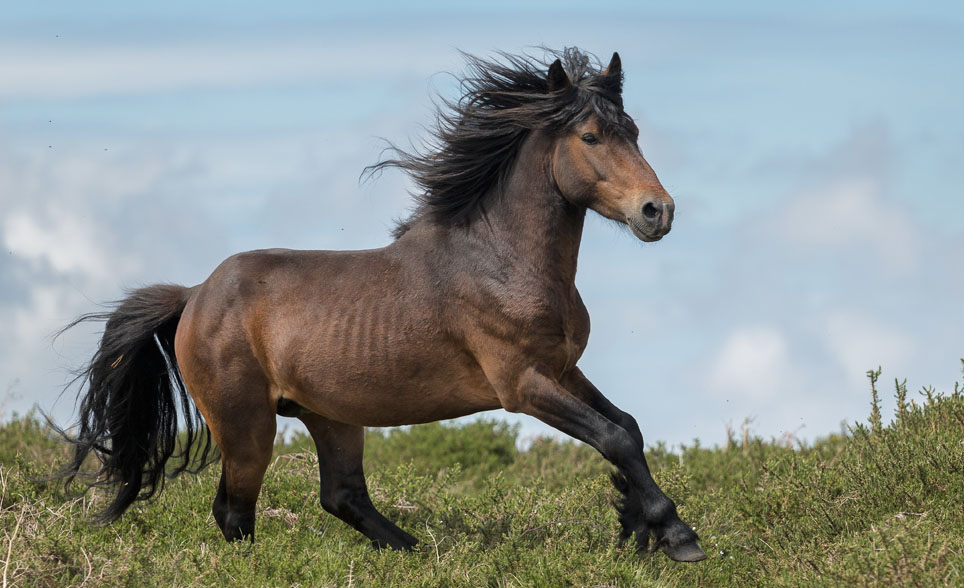Movement Over Varied Terrain

Movement is very important to the horse's well-being. In the wild, they live in areas where feed and water is often scarce. So to survive they need to continually travel to seek out food and water. They also move around whilst playing and establishing rank order. The horse has led this lifestyle for millions of years and their physiological makeup has evolved to support this. It's heart is relatively small compared to its body so it needs help from the muscles and joints to keep blood flowing through the body.
When a horse is stabled the circulatory system is not fully functioning
and the heart can be over-stressed. This is often made worse when short
but intense exercise is given.
Other Benefits of Movement Over Varied Terrain
- Movement also helps stimulate gain in bone density. This is particularly important for foals and young horses.
- Varied terrain stimulates the hooves and conditions them at the same time. Gravel is good for this, especially pea gravel.
- If your horse is doing enough miles then the hooves will start to maintain themselves. This is call self-trimming.
- Hills and rocks will help develop tendons and muscles and aid the horse in becoming more surefooted.
Stalling and its Effects
Dr Bob Bowker, one of the world's leading equine hoof researcher, did an experiment to study the effects on movement of stalling a horse. He found that horses that were stalled 24/7 only took 800 steps per day compared to pastured horses taking 8,000-10,000 steps per day.
He then went on to see if stalling just a night made a difference as most pastured horses move less at night anyway as they tend to sleep in the early hours. He found that the horses that were stalled at night were less inclined to move during the day even when they were turned out!